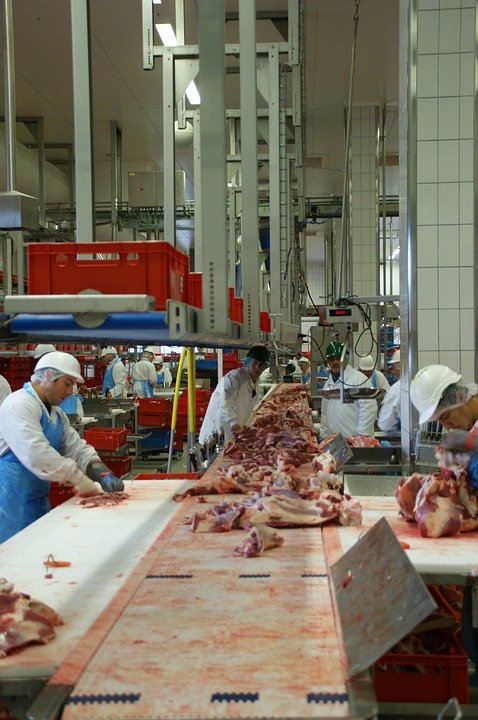I do not consider myself a writer. It's just that when I saw the contest post, I already have pre-conceived ideas on how to answer the question and with my work experience both in the public and the private sector, in two countries, I hope my insights can contribute to the discourse.
Is a degree still relevant?
That question is not answerable by an outright YES or NO, and neither of the two can sweep across different situations or circumstances. Personally, my answer is IT DEPENDS. Some occupations do require having a degree and for me these are those highly technical jobs – mostly in the field of science like doctors and scientists. But there are also those jobs that require practical skills which are applicable to that of trades like builders, plumbers, and the like.
While I already gave an answer, let me share why being a degree holder might or might not be important, in varying situations. I was born in the Philippines and finished my studies there. I worked for a combined 12 years in two government institutions, both of which are part of the education sector. Then I moved to New Zealand eight years ago and have experienced working in both the private and public sector in varying capacities. Currently, I work in what is so-called a Council Controlled Organization (CCO) which is more or less similar to the Government Owned and Controlled Corporation (GOCC) in the Philippines.
So let me start by describing the cultural and social context of having a degree in the Philippines. There, parents put very high regard to education, to which, is to have a college/university degree. It is common to hear parents say to their children, "yan lang ang maipapamana namin sa iyo" which translate to education as the only thing parents can leave to their children when they're gone. Parents will always make a way to send their children to school and get a degree because generally, that’s the way of landing a job. I am not entirely sure if this is the primary reason why the industries dictate that in hiring people, it is important to have a degree, regardless whether that is relevant or not to the job.
In my work in the Commission on Higher Education, it was common back then for education providers to bachelorized in-demand occupations, most probably because of the cultural factor I mentioned above. When demands for caregivers abroad increased, there were institutions who wanted Bachelor in Caregiving program. It’s the same with cosmetology where a university applied to open a bachelor’s program for cosmetology, when the demand for tertiary services like cosmetics surged. It is like the fulfillment of having the skill sets and knowledge in a particular area ALWAYS equate to having a degree.
When we moved to New Zealand, we struggled to find a job. Even having advanced studies and years of Philippine work experience, we couldn’t even get an interview. It is because I believe that New Zealand put more weight into work experience… in New Zealand. But our dilemma is this… How can we get a New Zealand experience when no one hires us at all?
It took us two months before landing a job in a meat processing plant. In a span of two years, I have worked on jobs not even near to an office-based work – gasoline boy, cleaner, retail assistant, caregiver, paper delivery guy, and other menial jobs just in order to make ends meet. These jobs do not require a degree for a person to perform outstandingly. What each requires is a degree of learning specific to the job itself. My job as retail assistant for instance, taught me a lot of things - how to assemble furniture under time pressure, cut various types of keys, mix paint, and the different kinds of house and garden tools and how to use them. In New Zealand, jobs requiring practical skills normally don’t require a degree. The country’s educational system, that of after high school, involves a system of levels, from 1-10. The bachelor’s degree that we know of is at Level 7, though there are some Diploma courses classified under the same level. For the retail industry, there is a Certificate in Retail at Level 2. While it is not required to get into retail jobs, it is somehow an advantage to have one when applying for a retail position.
Another thing that I noticed is that many employers, as I’ve already mentioned, put more weight on work experience. In my current job, I have colleagues that haven’t earned any degree but in terms of the knowledge and skills they accumulated over the years, they can put university graduates to shame. In addition, some organizations set a minimum skills set, and then they develop the person through on-the-job experience and supporting the person to get a formal qualification by enrolling them into a bachelor’s program.
Lastly, let me share that there are other factors come into play that may affect how things are done. I said New Zealand does not put more consideration in having degrees compared to that of the Philippines. But it’s different when it’s dealing with immigrants, particularly in some sectors. When we applied in the meat works, it is a very manual intensive job, and our jobs in the Philippines were both office-based, spent mostly in our desks. And yet we got hired, on the premise that we can learn the job much like everyone else (and more importantly, because we are already residents when we got here, not on a work visa like most overseas workers are). But if you’re coming from other countries like the Philippines, they will require that you have a least (though not a bachelor’s degree, but I still find relevant to this discussion) finished a certification for butchery work combined with related experience probably in a meat shop or a slaughterhouse. The same rule applies to farmers, builders, and other trade professions.
My experience working in both countries in various capacities helped me understand how society may differ in dealing with similar issues. On top of that, the workplace continues to evolve, either brought by extreme events like the COVID-19 pandemic, or the advancement in technologies which changes how we do things, or worse, makes our jobs obsolete.
Overall, having a degree being essential to a person is relative, while most of us may agree that it is important to have, our changing work environment and workplace paradigms may help us understand the issue better should we look at it at a different perspective.
Thank you for reading and I hope you get something from my post. I appreciate your feedback by commenting below.
A Little About Me
Please feel free to follow my account if you like my post.







Nice post. True, it depends on ones situation. I have friends who have a degree, masteral in their profession here in the Philippines then migrated to Australia hmm landed on field far from his profession. He again went to schooling.
Thank you. That situation is very common with immigrants, especially those who have struggled finding a job relevant to their Philippine work experience.
It really does seem to come down to what importance the country and society you're living in puts on a degree, whether we personally think it's necessary or not.
Thank you for sharing your story with us.
Yes indeed, and thank you too for reading my post.
Nice post, I will try to check if I can participate in the contest.
Thank you. There's still time to submit your post.
Yup I made it just in the nick of time. Tnx!